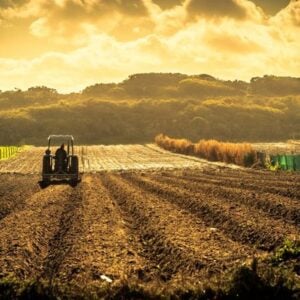Stakeholders from Côte d’Ivoire and Ghana convened in Abidjan on 15 August 2025 to review a draft assessment report on cross-border cocoa and rice value chains. The initiative, led by the United Nations Economic Commission for Africa (ECA) in partnership with the African Union Commission (AUC) and ECOWAS, seeks to enhance diversification, value addition, and intra-African trade under the African Continental Free Trade Area (AfCFTA). It is part of a broader program aimed at strengthening member states’ capacities to develop regional agricultural value chains in line with AU guidelines and the Common African Agro-Parks (CAAPs) programme.
The identification and integration of staple commodities into the Côte d’Ivoire–Ghana Common Agro-industrial Park will guide diversification strategies, improve its financial viability, and address the countries’ food security, trade, and climate resilience needs. According to Janet Edeme of the AUC, the CAAPs initiative is a flagship program under Agenda 2063, designed to transform Africa’s agricultural economies through integrated cross-border agro-industrial ecosystems. The pre-feasibility study for the CAAPs represents the first technical step toward building a viable investment case, complemented by an ongoing Green Climate Fund (GCF) process that will support a climate-resilient investment package for both countries.
Edeme urged all stakeholders—public and private, national and regional—to commit politically, technically, and financially to ensure the success of the Côte d’Ivoire–Ghana agro-industrial park. She highlighted its potential to serve as a model for industrial cooperation, climate-smart agricultural transformation, and economic prosperity for farmers, processors, and traders.
In her remarks, Joan Kagwanja of the ECA emphasized the transformative power of the AfCFTA, which since 2021 has covered a market of 1.2 billion people, expected to grow to 2.5 billion by 2050. She described the AfCFTA not only as a trade agreement but also as a tool to dismantle colonial borders and advance the AU’s Agenda 2063. Regional agricultural value chains, she stressed, are vital to achieving food security and sustainable economic growth across the continent.
To support this vision, the ECA and AUC developed guidelines for agricultural value chains, endorsed in 2019, which provide policymakers with a framework to boost sustainable agriculture and intra-African trade. A pilot project launched in Zambia and Zimbabwe focused on maize and dairy value chains, and the initiative has since expanded to Côte d’Ivoire and Ghana, prioritizing cocoa and rice.
Discussions during the meeting centered on assessing challenges and opportunities in cross-border cocoa and rice value chains. Stakeholders evaluated policy, regulatory, and institutional gaps, with the outcomes feeding into the pre-feasibility study for the proposed Common Agro-Industrial Park. Such a park is expected to improve agro-processing, cut post-harvest losses, and enhance cross-border trade. Kagwanja noted that strengthening these value chains will deepen collaboration among governments, industries, and academia.
ECOWAS expressed strong support through Abdoulaye Zonon, who highlighted its efforts to promote cross-border cooperation and industrial development in West Africa, particularly in the agro-processing sector. Esse Rodrigue, Côte d’Ivoire’s Director of Production and Industrial Competitiveness, underscored the government’s commitment to value chain development, aligning it with the country’s 2020–2025 national development plan that prioritizes industrial clusters including agro-processing. The next phase of the initiative will focus on capacity-building, reforms, and advancing cross-border agro-parks.
The meeting also included contributions from Côte d’Ivoire’s Ministry of Trade and ECOWAS representatives, reinforcing the program’s role in regional integration. The final assessment report will provide actionable strategies for policymakers. If successful, the Côte d’Ivoire–Ghana model could be replicated in other ECOWAS states, strengthening Africa’s agricultural and industrial ambitions under the AfCFTA.







